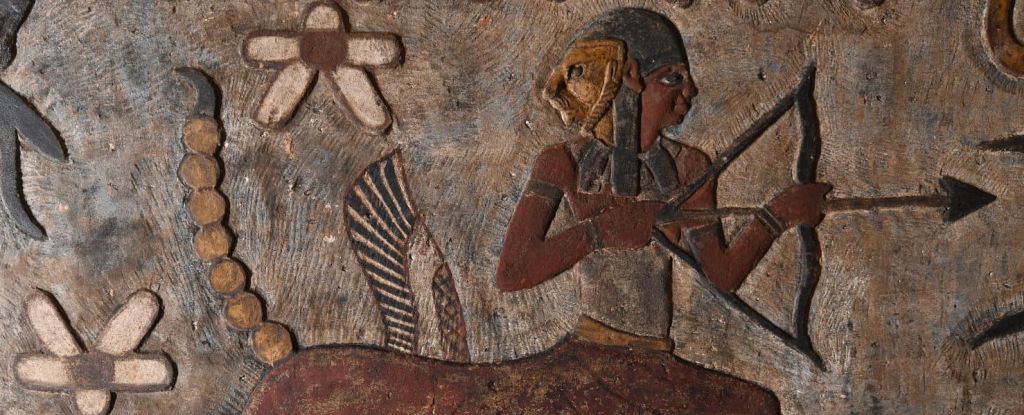Products You May Like
Looking to the stars for constellations that preside over birth and life has a long and complex history, and archaeologists have just uncovered a small piece of it.
A spectacular series of relief paintings on the ceiling of an ancient Egyptian temple depict 12 signs of the zodiac, and you might be surprised to recognize some of them.
In addition to the representations of the zodiac, the artworks restored in the magnificent Temple of Esna in Upper Egypt, dedicated to the ram-headed god Khnum and others, also include depictions of five of the planets in our Solar System, the “seven arrows” of Sekhmet, and some of the decans used to measure the hours of the night.
It’s a rare find, and a beautiful one, joining a series of stunning and intricate nearly 2,000-year-old artworks adorning the temple walls.
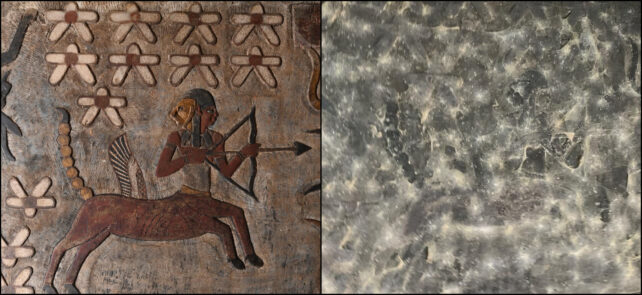
“Representations of the zodiac are very rare in Egyptian temples,” says Egyptologist Christian Leitz of the University of Tübingen in Germany, whose team has been working with the Egyptian Ministry of Tourism and Antiquities on the restoration project.
“The zodiac itself is part of Babylonian astronomy and does not appear in Egypt until Ptolemaic times.”
Construction of the Temple of Esna, approximately 60 kilometers (37 miles) south of Luxor, began during the Ptolemaic era, but continued for centuries. All that remains now is the vestibule, or pronaos, which was placed during the Roman Period, under the rule of the Emperor Claudius between 41 and 54 CE.
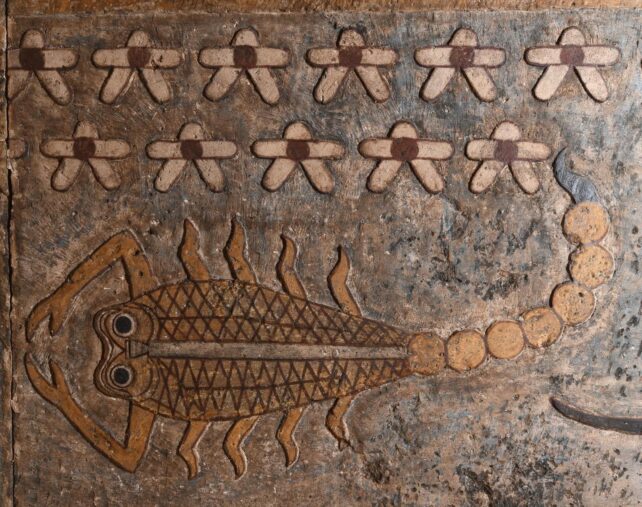
The vestibule, however, probably eclipsed the temple itself, and archaeologists have been working painstakingly to restore it to its former glory, removing nearly 2,000 years worth of dirt and soot. Last year, the team uncovered gorgeously painted frescoes depicting the vulture-headed goddess Nekhbet and the snake-headed goddess Wadjet as birds with outstretched wings.
“Temples and ancient depictions of the gods were often painted in brilliant colors,” Leitz said at the time, “but these have usually faded or even disappeared totally as a result of external influences.”
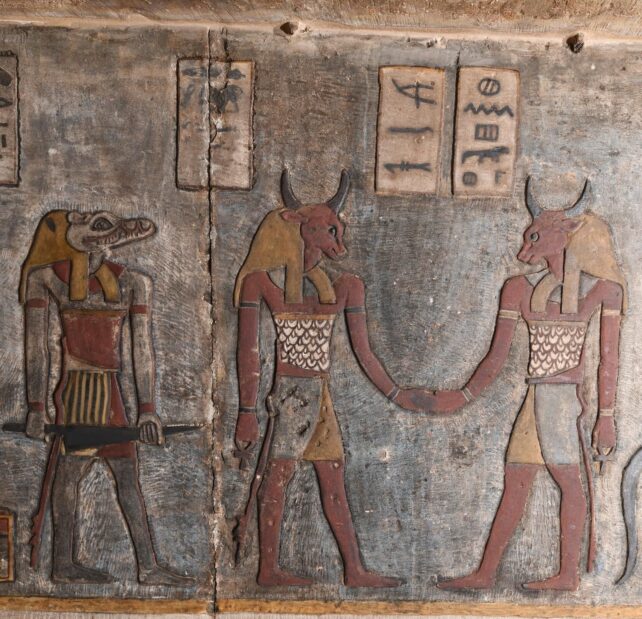
The Temple of Esna, the team says, is unique in the range of figures covering its walls, and the preservation of the colors, underneath all the grime. By carefully cleaning the sandstone reliefs, scientists and visitors can view the full breadth of the temple’s decorations in relation to each other.
Even amid this profusion of colorful figures, though, the depiction of zodiac signs is an interesting surprise. It’s thought that the ancient Greeks introduced the zodiac to Egypt, and it seemed to become very popular, but only in certain contexts.
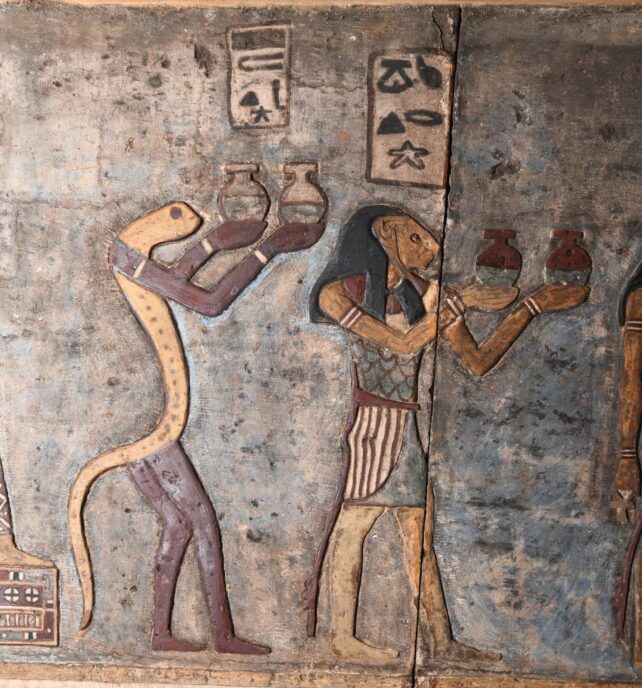
“The zodiac was used to decorate private tombs and sarcophagi and was of great importance in astrological texts, such as horoscopes found inscribed on pottery sherds,” says Egyptologist Daniel von Recklinghausen of the University of Tübingen.
“However, it is rare in temple decoration: Apart from Esna, there are only two completely preserved versions left, both from Dendera.”
A few years ago, work on the temple revealed, for the first time, the ancient Egyptian names for the constellations, such as Mesekhtiu (the Big Dipper), Sah (Orion), and a previously unknown constellation Apedu n Ra – “the geese of Ra”. Now we have some of the figures to match – most of them are the same as the western zodiac signs still used today.
Other decorations include the “seven arrows” of lion-headed warrior goddess Sekhmet, messengers that personified her wrath, and could bring either protection or destruction. The researchers also identified Jupiter, Mars, and Saturn, as well as a range of constellations used to help tell the time.
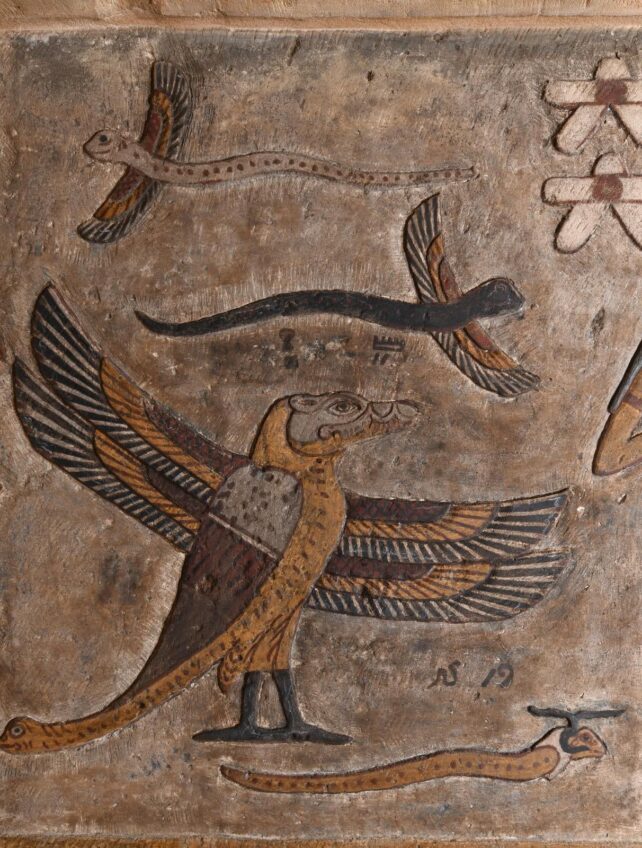
And many interesting and fantastical beasts were uncovered, such as snakes with wings, a bird with the head of a crocodile and a snake for a tail, and a snake with the head of a ram.
The work is still ongoing, but since it commenced in 2018, more than half the ceiling has been cleaned, as well as 8 of the 18 columns and 2 of the architraves supporting the ceiling. It’s slow work, in order to minimize damage to the pigments beneath the grime.
Only time will tell how many more clues about ancient Egypt the team can – carefully – uncover.
